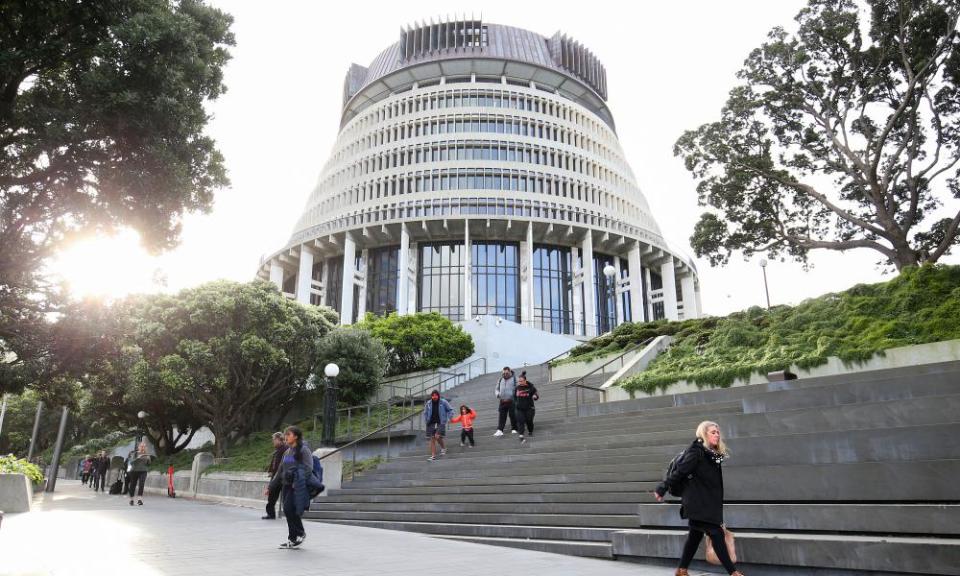New Zealand’s campaign finance laws are broken. That can have enormous consequences

The spokesperson for Aotearoa New Zealand’s Green party was genuinely surprised. She had called after I informed them that a major donor to their 2020 election campaign had subsequently pleaded guilty to animal neglect. The spokesperson said the Greens had not known about the neglect when they took her money.
They nevertheless refused to donate it onwards. They argued the Incorporated Societies Act required them to hold on to it. As I later found out, that’s not quite true: returning the donation, or donating it to an organisation like the SPCA, seems to be possible according to their party’s charter.
Days later, I revealed that in 2020 Labour MP Phil Twyford accepted a $2,000 donation from a friend who had claimed that Israeli intelligence agency the Mossad was behind the Christchurch massacre. Twyford also claimed ignorance. He returned the money after being approached by Newsroom.
In both cases, “we didn’t know” felt pretty unsatisfactory. It had taken me ten minutes to Google the donors’ names and discover their past. So throughout my recent investigation into campaign finance for Newsroom, I couldn’t help wondering: why were these politicians being so careless?
The answer gets at a wider truth about Aotearoa’s political system: politicians are under increasing pressure to raise money for their campaigns.
This is not necessarily because money is determinative in Aotearoa’s elections. In electorate races during the 2020 election, the candidate who spent the most money won less than half of the time. But it does help. In those races, the average successful campaign still cost $15,303. In six out of eight elections since 1999, the highest-spending major party subsequently formed the government.
And, more importantly, politicians believe it helps. As Ben Thomas – a communications consultant and former staffer for Aotearoa’s National Party – put it: “Are they going to see a big difference between $5m and $4m, or $3m and $2m? They definitely think that. I don’t know if that’s necessarily true, but politicians definitely think that.”
According to Thomas, this has produced something akin to an arms race between the country’s political parties. To keep up with your rival parties, politicians redouble their fundraising efforts, which prompts a similar response from their opponents.
We can see this in the numbers: the amount of money spent by political parties increased by 63% between the 1999 and 2020 elections. Danyl McLauchlan, a political commentator for The Spinoff, has described it as like the “Red Queen’s Dream, from Alice in Wonderland … everyone’s running to stay in place.”
In most circumstances, according to the experts I spoke to, this increased appetite for donations doesn’t translate to corruption. But it has still had enormous consequences.
Most obviously, it strengthens the political influence of the wealthiest Kiwis. Max Rashbrooke, an expert on democracy and inequality at Victoria University of Wellington, explained that many of the donations recently accepted by political parties “are big sums of money in the New Zealand context. They’re big enough to buy influence because they’re big enough to fund significant chunks of what political parties do.” Even if that influence doesn’t directly translate into policy outcomes, it may constrain the policies which political parties do pursue.
As Rashbrooke explained, “If you know your ability to run a political campaign is reliant on a particular class of people – generally the wealthy – there is going to be a tendency to put forward policies that promote their interests or don’t rock the boat”.
It also changes who is successful in politics. Thomas noted that,“If you’re a good fundraiser – and there’s nothing sinister about this – it will give you a competitive advantage in pursuing a list placing”. Candidates from wealthy families or big business gain a significant advantage over those with different backgrounds.
And finally, if politicians feel compelled to accept large sums of money, they may be tempted to hide where that money comes from to avoid precisely the kinds of embarrassments I discovered.
During my reporting, I found that both Aotearoa’s major parties may be lawfully circumventing campaign finance rules in order to avoid disclosing the sources of hundreds of thousands of dollars in donations. It’s a significant breach of the spirit of our electoral laws, which are premised on the idea that Kiwis should know who is donating large sums of money to our parties and politicians.
Reflecting on all this, it is hard to avoid the conclusion that our campaign finance laws are fundamentally broken. And until politicians realise the reason they feel compelled to obsess over money is the system they themselves constructed, or until voters demand that the system change, it’ll stay that way.

 Yahoo Finance
Yahoo Finance 